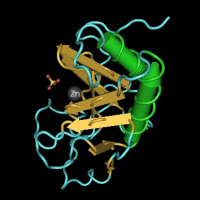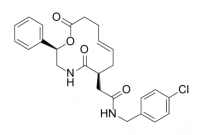Difference between revisions of "References to Sonic in medicine"
From Sonic Retro
m |
m (basic summary) |
||
| Line 1: | Line 1: | ||
{{back|References to Sonic}} | {{back|References to Sonic}} | ||
| + | The following is a list of '''references to [[Sonic]] in medicine'''. | ||
==Medicine== | ==Medicine== | ||
Revision as of 11:58, 8 May 2022
- Back to: References to Sonic.
The following is a list of references to Sonic in medicine.
Medicine
The medical field will sometimes give names to newly-discovered biological components which reference movies, music, and video games. Due to Sonic the Hedgehog's widespread familiarity, a variant of the hedgehog gene was given the title sonic hedgehog in 1994, and subsequently received a significant amount of press coverage - introducing the general public to the concept of "named genes" (such as the later pikachurin.) While some controversy surrounded these references - particularly, concern over situations where patients were told their condition was the result of a "frivolous-sounding" name - the argument has largely died down, and genes are still occasionally named for famous video game characters.
| Name | Type | Discovery date | Description | Images |
|---|---|---|---|---|
| Sonic hedgehog | Protein | 1993/1994 | A protein which serves as a signaling molecule, and the key in regulating embryonic morphogenesis in all different types of animals.[1] Originally, the hedgehog genetic family earned its name from its bristled appearance. When the specific gene was isolated, a Tabin Lab postdoctoral fellow named Robert Riddle decided to append the name Sonic to the newly-discovered protein. According to Riddle, he thought up the reference after his wife came home with a magazine containing an advert for Sonic the Hedgehog.[2] | 
|
| Robotnikinin | Protein inhibitor | 2009-03 | A potential inhibitor of the Sonic hedgehog signaling pathway, named in reference to the original Western name of Sonic's long-time nemesis, Dr. Robotnik.[3] | 
|